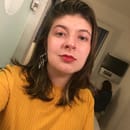Most of Gen Z girls learned about feminism via social media. That is a totally valid way to start reading about the movement and as well is the best platform for those who want to make a change in the world. However, it’s important to have more resources than only girl power pages on Instagram and feminist YouTubers, even though those are great platforms for spreading the word in an easier way. In this post, there are five books to start reading and learning about feminism, how the movement started, where is it going, and it’s intersections.
- The Second Sex – Simone de Beauvoir
-
Many scholars say that a new feminism branch was born with this book and it is an absolute classic from the moment it was published. It’s a new take on how women are held accountable, even by themselves, for having desires and fantasies the way men do and also on how women’s bodies are projected onto society. Her famous quote “one is not born, but rather becomes a woman”, comes from these pages and from her theories on what it takes to be female in a patriarchal world. It’s a must when learning about feminist history and origins.
- A Room of One’s Own – Virginia Woolf
-
This essay marks a big change in feminist thinking of the twentieth century. Woolf’s work walks the reader through the history of women in literature, talking about the traditional and patriarchal way of writing about women since the beginning of time. It’s acid, sometimes harsh, but it plants the seeds of doubt that makes anyone question the roots of our media, as well as the role of women in the world we live in and the stereotypes we are put in daily.
It’s a short book, with easy language, perfect for whoever is beginning their journey in papers and essays about the history of feminism.
- Sister Outsider: Essays and Speeches – Audre Lorde
-
This collection of essays, speeches and letters was written by the black poet, activist, mother and feminist writer Audre Lorde, who lived from 1976 to 1984. Lorde talks about different sides of feminism, each one worthy of its own reflections. She talks about classicism, homophobia, racism and ageism, as well as, self-love, war, imperialism, black women in poetry, and so many other topics. She argues for a necessity for a movement that differentiates itself from white feminism, a topic that needs to be more discussed and it is important to learn about when studying feminism.
- Feminist Theory: From Margin to Center – Bell Hooks
-
Just like the previous feminist thinker, Bell Hooks’ ideas might be unsettling at first, and that is exactly how she wants you to feel. She was a leader in the radical feminism movement when it began, bringing her thoughts about black feminism and being a black woman in society. Hooks used the term white-supremacist capitalist patriarchy in her writing, and strongly agrees that there could be no equality between white and black people, or between men and women, without the end of capitalism. Feminist Theory embodies the hope that feminists can find a common language to spread the word and create a mass, global feminist movement.
- Gender Trouble – Judith Butler
-
The work of Judith Butler was influential in feminism, gender studies and queer theory, and her theories argue that gender is an improvised performance. She criticizes the universality of patriarchy, while women are divided into categories and separated according to rules that go beyond being or not a female. Her views on gender binary, sex and sexuality influence the feminist and LGBTQ+ movements to this day, and she continues to write about her theories and thoughts as a professor in UCBerkley.
—————————————————————-
The article above was edited by Amanda Ardigó.
Liked this type of content? Check Her Campus Casper Libero home page for more!


